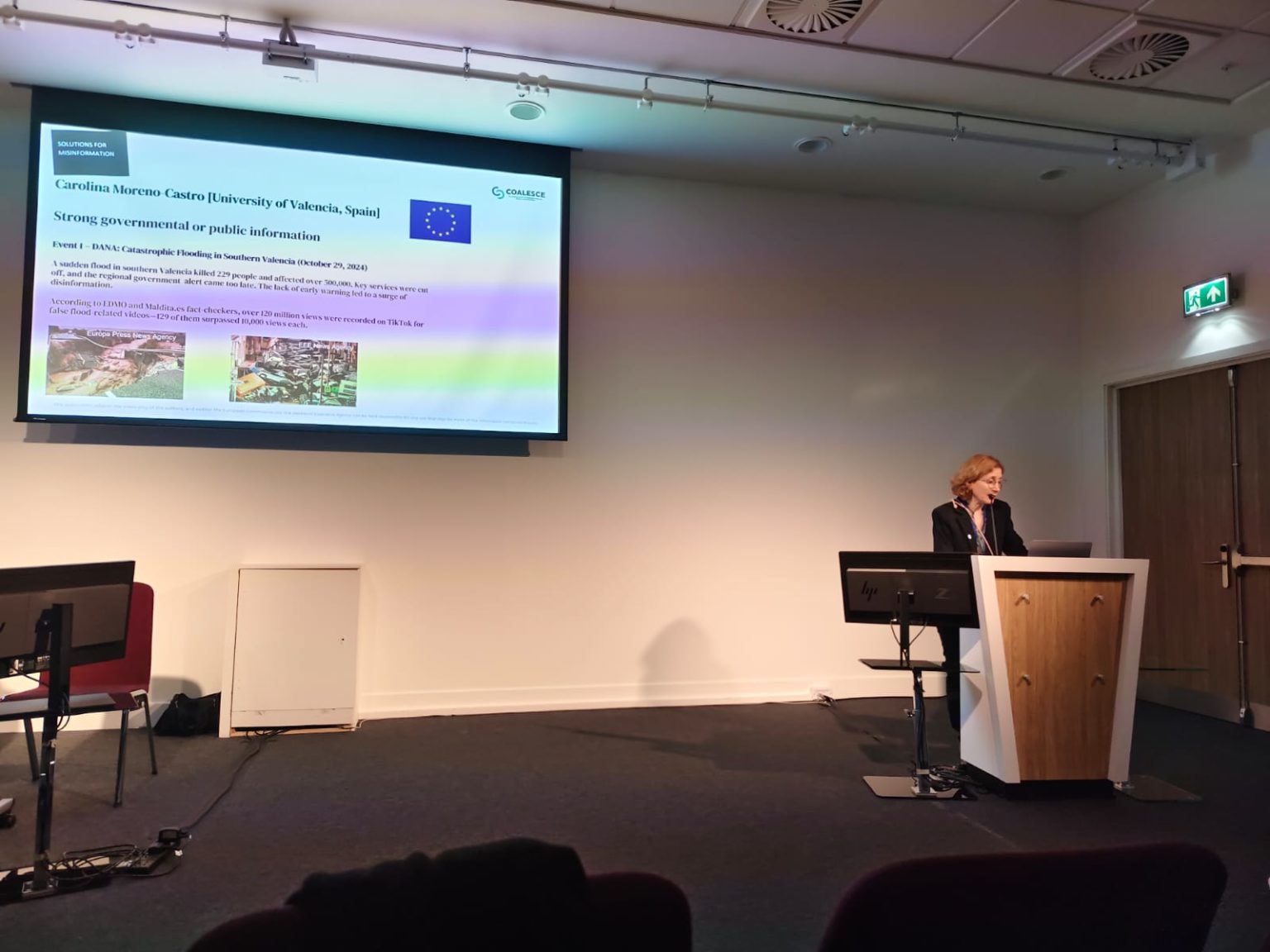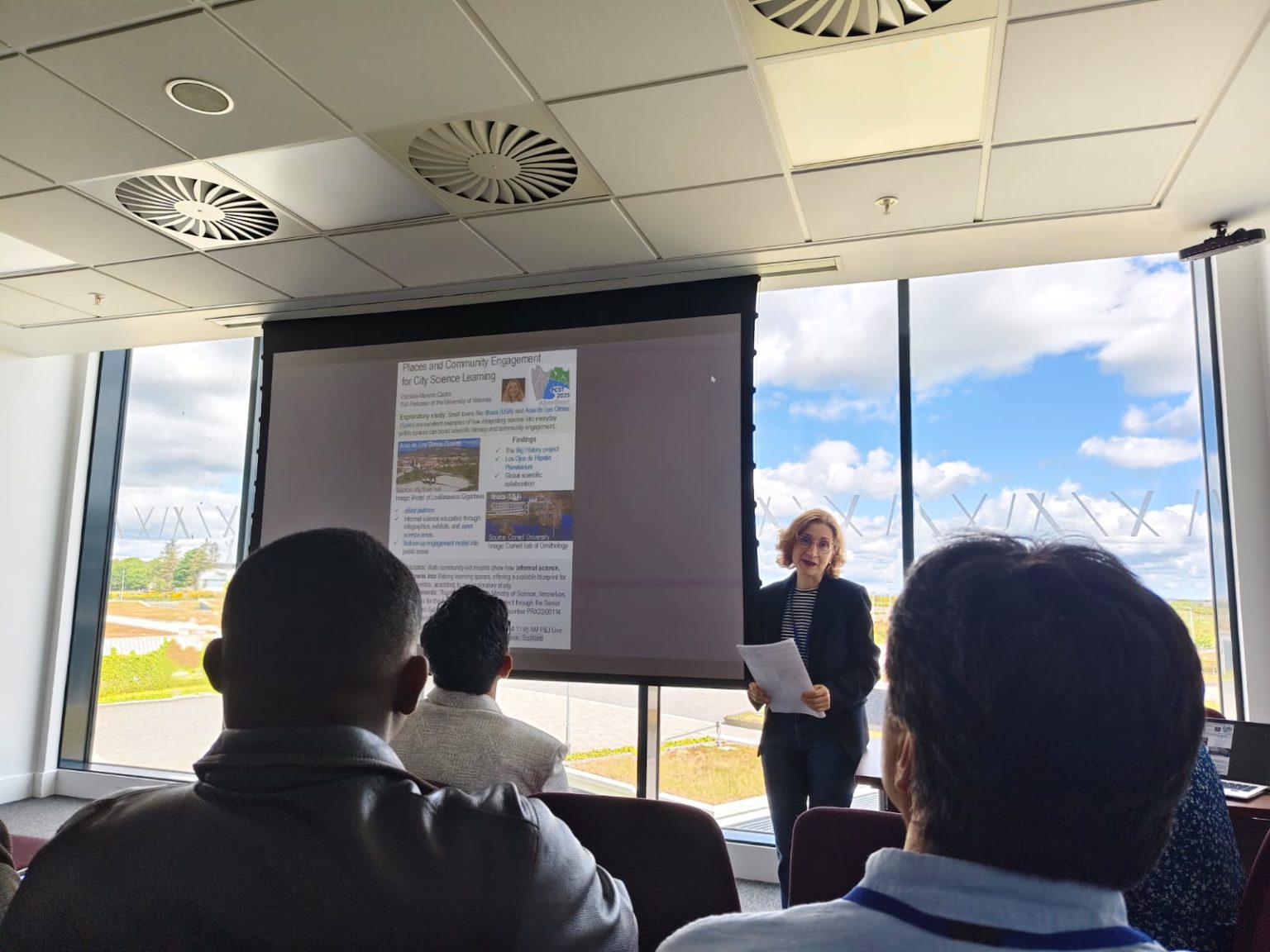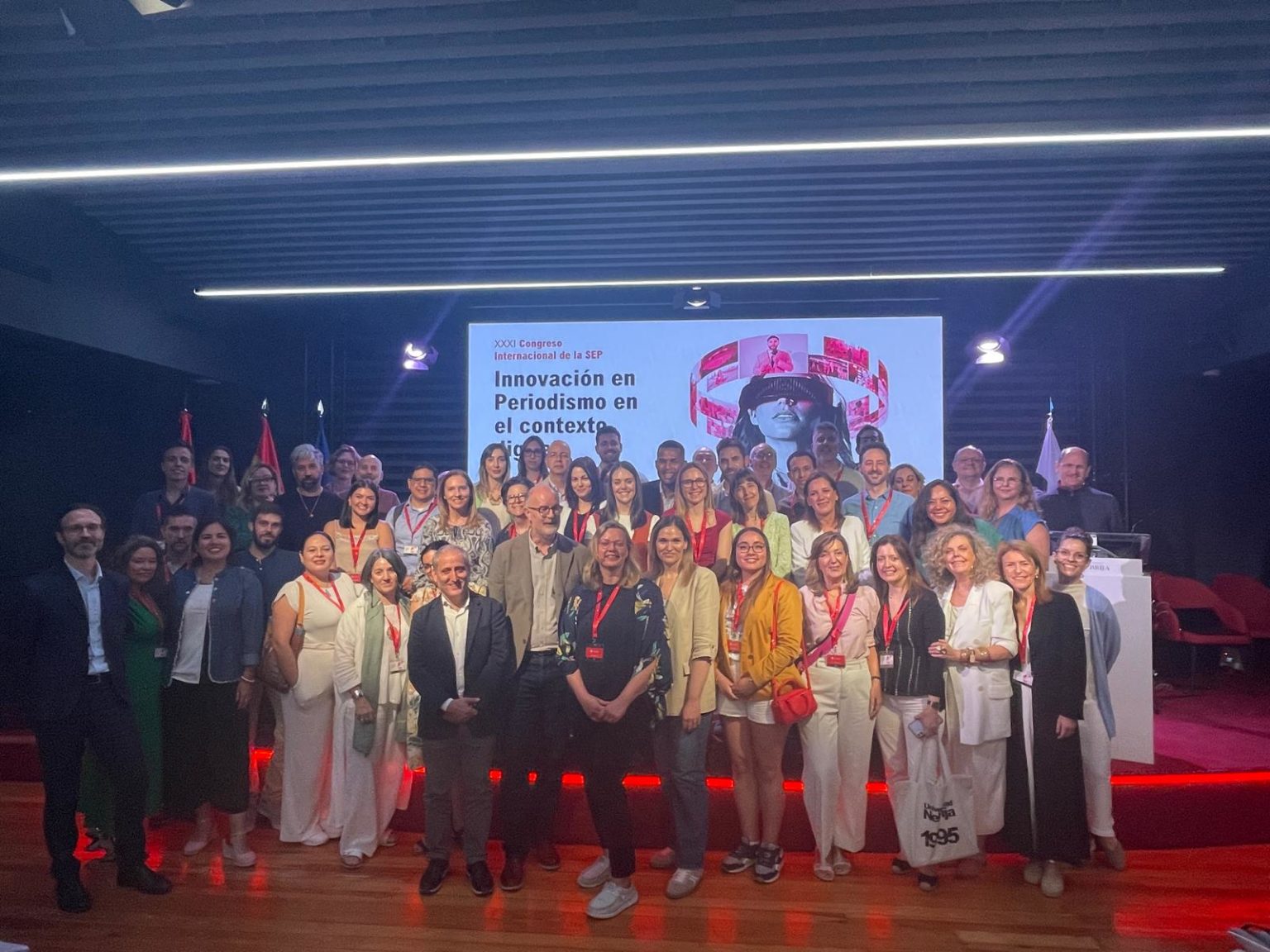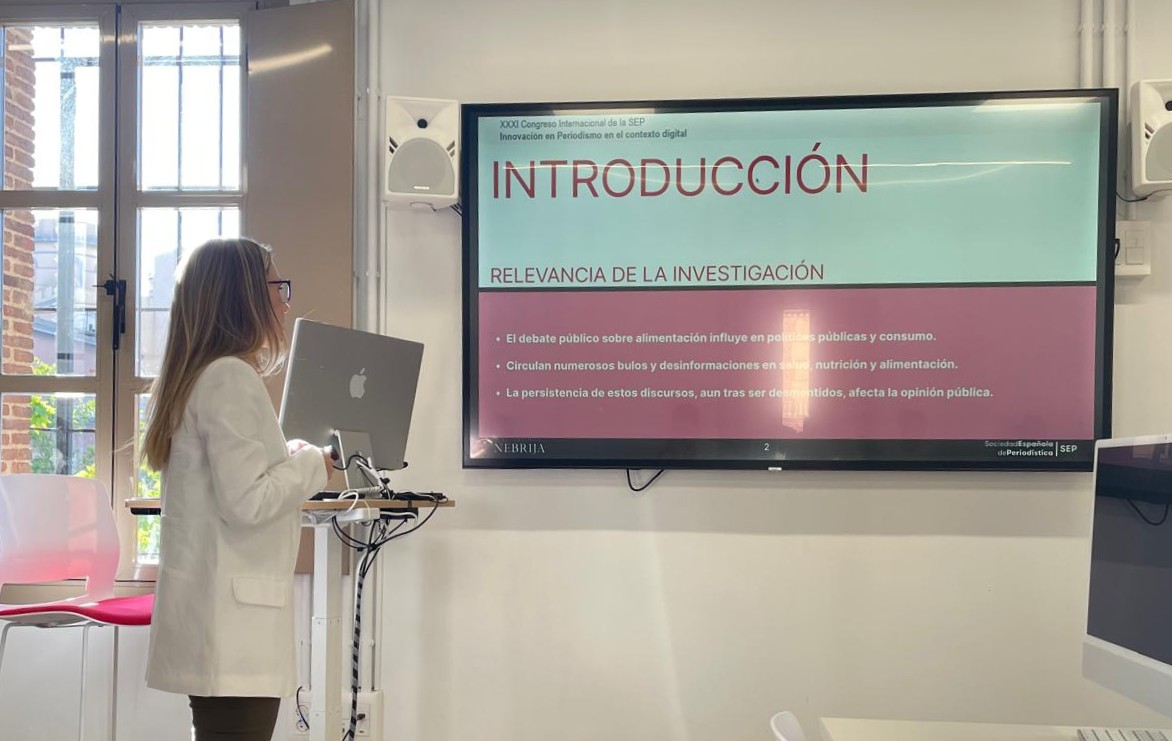The ScienceFlows group has presented its research on disinformation and science communication policies at two international conferences: the International Public Communication of Science and Technology Conference (PCST 2025) and the XXXI International Congress of the Spanish Society of Journalism (SEP).


From May 26 to 29, the International Public Communication of Science and Technology Conference (PCST 2025) was held in Aberdeen, Scotland—one of the most important global gatherings in the field of science communication. Carolina Moreno-Castro, principal investigator of the @ScienceFlows group, and Isabel Mendoza-Poudereux participated in two sessions presented within the framework of the European COALESCE project, representing the Universitat de València team.
Dr. Moreno-Castro presented the study “Places and community engagement for city science learning”, which explores how two small towns, Ithaca (USA) and Aras de los Olmos (Spain), integrate science, culture, and community to promote scientific literacy. From the eBird platform in Ithaca to the Los Ojos de Hipatia Planetarium in Aras, the study demonstrates how informal and natural spaces can serve as open classrooms for lifelong learning.

Additionally, both researchers participated in two COALESCE project sessions. The first focused on the crisis of science disinformation, addressing the challenges communicators face in combating false information and proposing international strategies to tackle it. The second session centred on advancing a political agenda to professionalise science communication, highlighting recommendations from the European Competence Centre and mutual learning exercises promoted by the European Commission.
From June 4 to 6, the group also participated in the XXXI International Congress of the SEP, held at Nebrija University, where FPU doctoral researcher Paula von-Polheim presented her paper, “Mapping Disinformation in Nutrition: The Role of Fact-Checkers in the Post-COVID Era.” Through a computational analysis of 564 publications by Newtral and Maldita Alimentación, von-Polheim identified common topics and discursive styles in food-related misinformation.

This study aligns with growing academic interest in fact-checking processes and their impact on public health. By rigorously analysing 564 fact-checks from Newtral and Maldita Alimentación, the research identifies the main themes in prevalent food-related hoaxes, including chronic diseases, unverified food properties, and pseudoscientific discourses related to nutrition.

Beyond thematic categorization, the research offers a critical reflection on the role of fact-checkers as agents of scientific and media literacy. It also emphasizes the importance of adapting technical language for the general public and strengthening trust in these platforms through accessible communication strategies, supported by scientific evidence and institutional backing.
This work represents the first phase of a broader research line aimed at developing educational and communication strategies to counter food-related disinformation. In a digital environment where health misinformation spreads rapidly, studies like this make a valuable contribution to the intersection of communication, science, and public health.
Both conference contributions underscore the ScienceFlows research team’s commitment to interdisciplinary work across communication, science, and public health, as well as its dedication to open science that is deeply connected to society.









